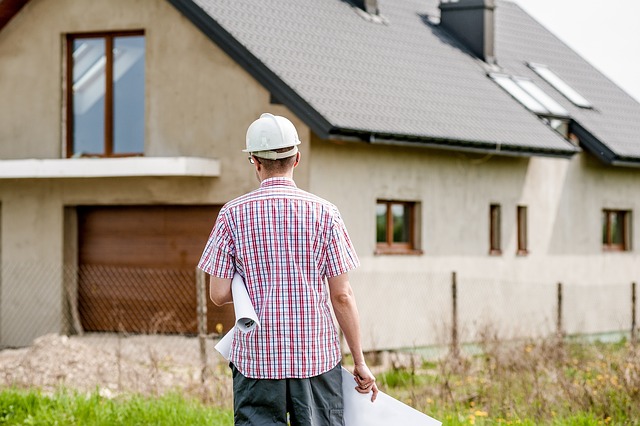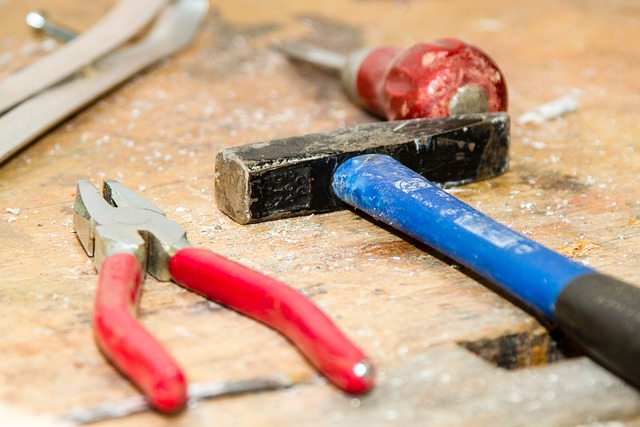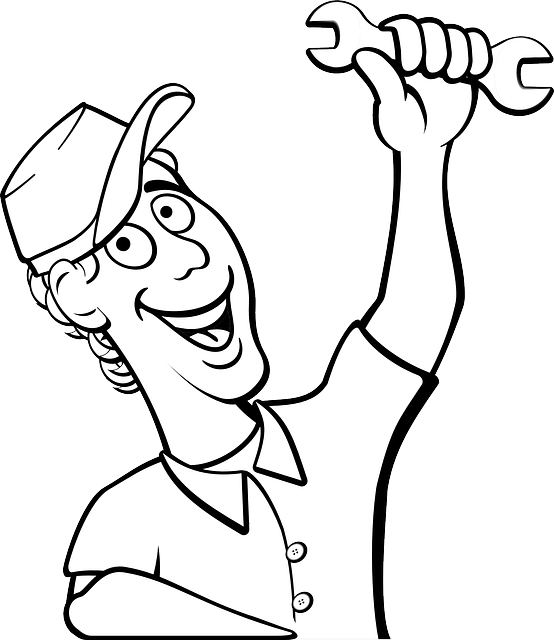Regular HVAC maintenance is essential for energy efficiency, cost savings, and consistent comfort in your home. It involves replacing or cleaning air filters, adjusting thermostats, lubricating mechanical parts, and inspecting ductwork to prevent leaks. This routine care extends the lifespan of your system, prevents minor issues from escalating into major problems, and helps you avoid expensive repairs. Homeowners should also regularly check the outdoor unit for debris and inspect refrigerant lines for leaks. Professional assistance is recommended for complex repairs involving the compressor or electrical systems, especially when unusual sounds, inefficient heating/cooling, spikes in utility costs, or frequent cycling occur. Utilizing home repair and maintenance services from certified experts who understand modern HVAC technology ensures proper system care, diagnoses, and maintenance plans tailored to your specific needs, thus maintaining peak performance year-round. Regular proactive maintenance under the umbrella of home repair and maintenance best practices not only enhances system longevity but also contributes significantly to overall savings and comfort.
Optimizing your home’s climate control systems is a cornerstone of effective home repair and maintenance. This article delves into the critical aspects of maintaining and repairing HVAC systems to enhance overall home efficiency. From grasping the importance of regular upkeep to mastering DIY repair techniques, and knowing when professional intervention is necessary, this guide equips you with the knowledge to ensure your HVAC system operates at peak performance. Elevate your living space with informed, proactive care for your heating and cooling infrastructure.
- Understanding the Essence of Regular HVAC Maintenance for Home Efficiency
- The Step-by-Step Guide to Proper HVAC Repair Techniques
- Enlisting Expert Help: When and How to Call a Professional HVAC Service
Understanding the Essence of Regular HVAC Maintenance for Home Efficiency

Regular HVAC maintenance is a cornerstone of home efficiency, ensuring that your heating, ventilation, and air conditioning systems operate at peak performance. This diligence not only extends the lifespan of your HVAC unit but also contributes to energy savings and comfort within your residence. A well-maintained HVAC system consumes less power, which translates into lower utility bills and a reduced carbon footprint. Homeowners who prioritize routine check-ups and cleaning can prevent minor issues from escalating, thus avoiding costly repairs down the line. These maintenance tasks typically include inspecting and replacing filters, checking the thermostat settings, lubricating moving parts, and assessing ductwork for leaks or blockages. By adhering to a regular maintenance schedule, homeowners can maintain optimal efficiency throughout the year, ensuring their HVAC system functions reliably when needed most, particularly during extreme weather conditions. In essence, investing in consistent HVAC maintenance is a proactive approach to home repair and maintenance that pays dividends in energy savings, system longevity, and overall comfort.
The Step-by-Step Guide to Proper HVAC Repair Techniques

Regular upkeep of your HVAC system is crucial for its longevity and efficiency. A step-by-step guide to proper HVAC repair techniques can empower homeowners to address minor issues before they escalate into costly repairs or replacements. The process begins with a thorough inspection. Homeowners should first check the filters, as dirty or clogged filters restrict airflow, leading to decreased system performance and potential damage. Clearing these filters is a straightforward task that can be performed monthly during peak usage months.
Next, inspect the thermostat settings to ensure they align with your home’s temperature requirements. Inconsistent settings can cause the HVAC system to operate inefficiently. After these initial checks, it’s important to examine the system’s exterior components. Look for any debris or obstructions around the outdoor unit that may impede its function. Trim back any foliage within two feet of the unit and clear away any leaves, branches, or other detritus. During your maintenance routine, also pay attention to the refrigerant lines for any signs of damage or leaks, as these can significantly impact the system’s cooling capacity. If you suspect a leak, it’s advisable to contact a professional HVAC technician to handle the situation safely and effectively. Regular lubrication of moving parts, such as fan motors and bearings, is also essential for smooth operation and should be part of your home repair and maintenance regimen. By following these steps, you can address many common issues, ensuring your HVAC system operates at peak performance, ultimately saving time and money on repairs in the long run.
Enlisting Expert Help: When and How to Call a Professional HVAC Service

When your heating, ventilation, and air conditioning (HVAC) system starts to show signs of wear or malfunction, it’s crucial to address issues promptly to maintain efficiency and ensure your home’s comfort and safety. Regular maintenance is key to preventing larger problems; however, certain tasks are best left to professionals with expertise in HVAC home repair and maintenance. These include complex repairs, such as replacing a faulty compressor or resolving electrical issues, which can pose risks if attempted by an untrained individual. To determine when to call a professional service, observe symptoms like unusual noises, insufficient heating or cooling, higher energy bills, or a system that cycles on and off more frequently than normal. These could indicate a need for expert intervention.
When you decide it’s time to enlist the help of a skilled HVAC technician, choose a service with a strong reputation for reliability and quality workmanship. Look for companies with certified professionals who specialize in home repair and maintenance services. A good professional will conduct a thorough inspection, diagnose issues accurately, and provide you with a transparent estimate before proceeding with any repairs. They should also be up-to-date with the latest HVAC technology and offer solutions tailored to your specific system and needs. By entrusting your HVAC maintenance and repair to experts, you can safeguard your home’s climate control systems against breakdowns and extend their lifespan, ensuring they operate at peak performance all year round.
Effective HVAC maintenance and timely repair are pivotal for maintaining a comfortable and energy-efficient home environment. This article has illuminated the importance of regular upkeep, offering a comprehensive guide to proper repair techniques, and providing clear criteria for when expert assistance is necessary. By understanding the significance of these practices and knowing how to perform repairs or when to call a professional HVAC service, homeowners can ensure their systems operate at peak performance, ultimately enhancing home efficiency and longevity. Home Repair and Maintenance are not just about reacting to issues but also about proactive care, which this article underscores as essential for optimal home functioning and cost savings.
